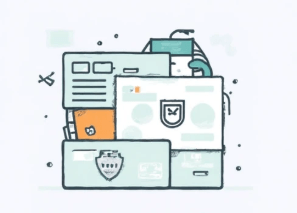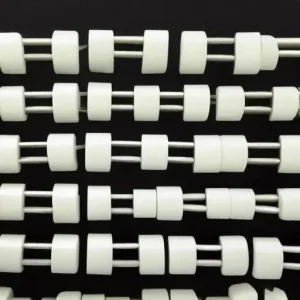How Much Interest Will I Pay on My Car Loan
Worried about how much interest you’ll REALLY pay on your car loan? Our guide helps you calculate and avoid overpaying. Get smart about car loan interest!
Understanding the total interest you’ll pay on your car loan is crucial for making informed financial decisions. It allows you to accurately assess the overall cost of the vehicle and compare different loan offers effectively. Many factors influence the amount of interest you accrue over the life of the loan, including the loan amount, the interest rate, and the loan term. Calculating how much interest will i pay on my car loan beforehand can save you from unpleasant surprises down the road and help you budget accordingly.
Factors Affecting Your Car Loan Interest
Several key factors determine the amount of interest you’ll ultimately pay on your car loan. Understanding these factors allows you to make strategic decisions when shopping for a loan.
- Loan Amount: The principal amount you borrow directly impacts the interest accrued. Higher loan amounts naturally lead to higher interest payments.
- Interest Rate: This is the percentage the lender charges you for borrowing the money. Even small differences in interest rates can have a significant impact over the life of the loan.
- Loan Term: The length of time you have to repay the loan. Longer loan terms usually result in lower monthly payments, but you’ll pay significantly more interest overall. Shorter terms mean higher monthly payments but less interest paid.
- Credit Score: Your credit score is a major determining factor. Lenders use it to assess your creditworthiness. A higher credit score usually translates to a lower interest rate.
Calculating Your Car Loan Interest
While lenders typically provide an amortization schedule outlining your payments and interest breakdown, you can also estimate the interest yourself.
Simple Interest Calculation
A simplified way to estimate interest is to use the following formula:
Total Interest = (Loan Amount * Interest Rate * Loan Term (in years))
For example, if you borrow $20,000 at a 6% interest rate for 5 years:
Total Interest = ($20,000 * 0.06 * 5) = $6,000
Keep in mind that this is a simplified calculation and doesn’t account for compounding interest or the specific amortization schedule. For a more precise figure, use an online car loan calculator or consult with your lender.
Tips to Reduce Car Loan Interest
You can take several proactive steps to minimize the amount of interest you pay on your car loan.
- Improve Your Credit Score: Pay bills on time, reduce debt, and check your credit report for errors.
- Shop Around for the Best Rate: Get quotes from multiple lenders, including banks, credit unions, and online lenders.
- Make a Larger Down Payment: Reducing the loan amount reduces the amount of interest you’ll pay.
- Choose a Shorter Loan Term: While monthly payments will be higher, you’ll save significantly on interest in the long run.
- Consider Refinancing: If interest rates drop or your credit score improves after taking out the initial loan, consider refinancing to secure a lower interest rate.
Finally, when considering a car loan, understanding your financial obligations is paramount. Evaluating “how much interest will I pay on my car loan?” is a smart first step. By carefully considering all the factors discussed and taking proactive steps to reduce interest, you can make a well-informed decision and save money over the life of your car loan.
UNDERSTANDING AMORTIZATION SCHEDULES
An amortization schedule is a table detailing each loan payment, breaking down the amount allocated to principal and interest. It shows how your loan balance decreases over time. Lenders typically provide this schedule when you secure a car loan. Analyzing your amortization schedule can help you:
– Track your loan progress.
– See exactly how much interest you’re paying each month.
– Understand how extra payments can shorten your loan term and reduce total interest paid.
Early in the loan term, a larger portion of your payment goes towards interest, while later on, a larger portion goes towards the principal. This is why making extra payments early in the loan can have a more significant impact on reducing the total interest you pay.
LEASING VS. BUYING: INTEREST CONSIDERATIONS
When deciding between leasing and buying a car, interest (or its equivalent in a lease) is a key consideration. While buying involves a car loan with explicit interest charges, leasing involves a similar concept called a “money factor.” The money factor represents the interest rate you’re essentially paying on the depreciated value of the car during the lease term.
It’s important to compare the total cost of leasing versus buying, including all fees, taxes, and interest (or the implied interest in a lease). Leasing may seem cheaper upfront with lower monthly payments, but it doesn’t build equity, and you’ll have to either buy the car at the end of the lease or return it and start the process all over again. Buying builds equity, but you’re responsible for maintenance and repairs after the warranty expires. The best choice depends on your individual needs and financial situation.
THE IMPACT OF CREDIT SCORE TIERS ON INTEREST RATES
Lenders categorize borrowers into credit score tiers, each with corresponding interest rates. These tiers typically look something like this (rates are illustrative and can vary widely):
Credit Score Range
Typical Interest Rate (New Car)
Typical Interest Rate (Used Car)
781-850 (Excellent)
4.0% ⎼ 6.0%
5.0% ⎼ 7.0%
661-780 (Good)
6.0% — 8.0%
7.0% ⎼ 9.0%
601-660 (Fair)
8.0% — 12.0%
9.0% ⎼ 14.0%
501-600 (Poor)
12.0%, 18.0%
14.0% ⎼ 20.0%
300-500 (Very Poor)
18.0% ⎼ 25.0%+
20.0% — 30.0%+
As you can see, the difference in interest rates between credit score tiers can be substantial. This highlights the importance of improving your credit score before applying for a car loan. Even a small improvement can save you thousands of dollars in interest over the life of the loan.
Understanding all these factors is critical to minimize your expenses. Planning your payments and figuring out how much interest will I pay on my car loan can save you money in the long run. So, be sure to do your research and find the best deal for your specific situation.




